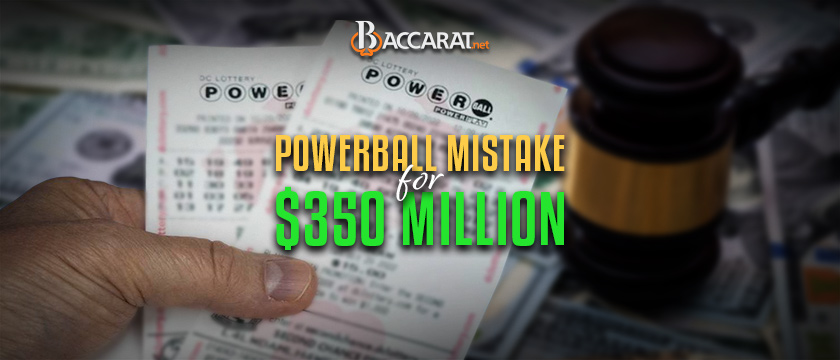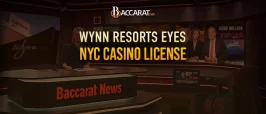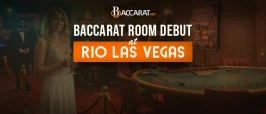Mistake on Powerball Website Leads to $340m Lawsuit

A Washington DC resident is suing the Powerball lottery after he was denied a $340 million jackpot despite the fact that his numbers matched those displayed on the lottery’s website.
John Cheeks bought his Powerball lottery ticket on January 6 and he selected a set of numbers that had meaning to him, such as important family birthdays. Cheeks said that he did not watch the live draw but he did see his numbers listed as the winning combination when he visited the Powerball website a few days later.
Speaking in an interview with NBC, Cheeks said, “I got a little excited, but I didn’t shout, I didn’t scream. I just politely called a friend. I took a picture as he recommended, and that was it. I went to sleep.”
Office of Lottery and Gaming Deny Win
However, when Cheeks visited the Office of Lottery and Gaming (OLG) the next day to claim his win, he was told that he did not have a winning ticket. Instead, the OLG informed him that the numbers shown on the Powerball website were part of a test and that they did not represent the winning numbers that were drawn on January 7.
Because of this, Cheeks’ ticket was not recognized as a winner when he presented it to OLG. Instead, according to Cheeks, a staff member told him to dispose of his ticket in a dustbin by the OLG office in Washington. Speaking of the moment, Cheeks said:
“Hey, this ticket is no good. Just throw it in the trash can.’ And I gave him a stern look. I said, ‘In the trash can?’ ‘Oh yeah, just throw it away. You’re not gonna get paid. There’s a trash can right there.”
While there is no doubt that the case touches upon the integrity and accountability of lottery operators, Cheeks could improve his chances of winning by playing online baccarat at one of our recommended trusted online baccarat sites.
Cheeks Hires a Lawyer
However, rather than take the advice, Cheeks put his ticket in a safe deposit box and retained the services of a lawyer.
The lawsuit names a number of defendants, including the Multi-State Lottery Association and Taoti Enterprises, a game contractor. The filing states:
“Defendants made a false representation, when they announced a different winning number, two or more days after the announcement of the winning Powerball number on January 7, 2024 thru January 9, 2024 and alleged system error.”
In a court declaration, Brittany Bailey, the project manager at Taoti, said that tests were being carried out by the company’s quality assurance team. Specifically, they were testing adjusting the time zones on the Powerball website from Coordinated Universal Time to Eastern Standard Time.
During these tests, the quality assurance team mistakenly posted a test Powerball number on the website at 12:09 pm that day. The test was meant to take place in a development environment, but an accident resulted in the test numbers being shown on the live website. Bailey further said that the test numbers were not the same as those that were drawn in the January Powerball draw.
No Evidence of Mistake
Richard Evans, Cheeks’ lawyer, claims that he has not been shown evidence to support Bailey’s arguments. Furthermore, he asks, “Even if a mistake was made, the question becomes: What do you do about that?”
According to Evans, a similar situation occurred last year when an incorrect combination of numbers was published online, leading to an acknowledgment of a human reporting error by the Iowa Lottery statement. When this happened, the Iowa Lottery allowed the temporary winners to keep their prizes, which ranged from $4 up to $200.
Lawsuit Addresses Reliability of Operators
In an email to NPR, Evans said that the Powerball lawsuit raises important questions “about the integrity and accountability of lottery operations and the safeguards — or lack thereof — against the type of errors that Powerball and the DC Lottery admit occurred in this case.”
He also argued that the lawsuit is not just about what numbers were published on the website but also about “the reliability of institutions that promise life-changing opportunities while heavily profiting in the process.”
It is likely to be a lengthy legal battle for Cheeks and Evans and one that lottery enthusiasts worldwide will be watching closely.



